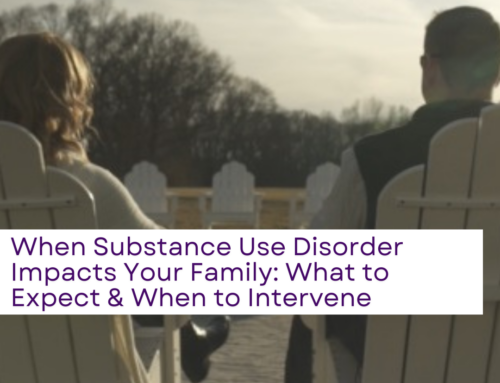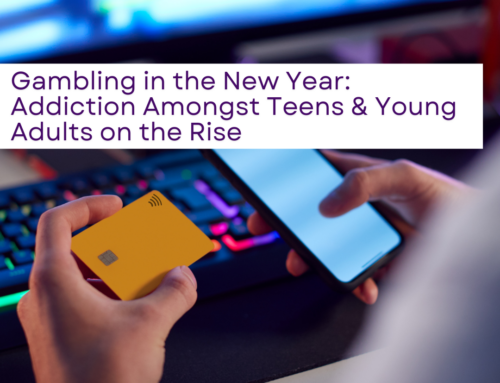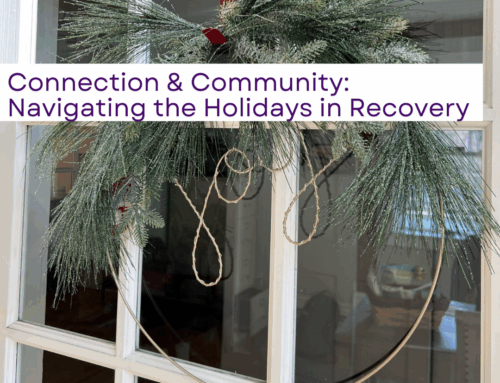What is Stigma?
Stigma is defined as this: a set of negative beliefs that a group or society holds about a topic or group of people.
Another truth about stigma is that is it rarely based on facts, but rather on preconceptions, assumptions, and generalizations. In today’s global information-sharing age, stigma has the power to spread even more rampantly than in the past. The flip side of this coin, however, is the power to break free of stigma by informing and educating is also greater than ever.
Stigma and Substance Use Disorder

A 2014 National Survey on Drug Use and Health found that 21.5 million Americans age 12 and older had a substance use disorder (previously known as addiction but modified in the Diagnostic and Statistical Manual of Mental Disorders (DSM 5) to more accurately reflect the nature of the disease), but only 2.5 million received the help they need. The stigma surrounding substance use is a large barrier to people asking for help. Here is a fact about substance use that isn’t as broadly known: there are over 23 million Americans in long-term recovery from this disease.
Unfortunately, tragic and/or unhappy news usually travels faster and farther than hopeful, positive, good news. Part of fighting stigma is getting accurate information out there to counterbalance the negative impact of sensationalized and/or inaccurate conceptions about substance use and other disorders.
Stigma is a Public Health Issue

Stigma isn’t limited to water cooler gossip or social media, however. While it has improved in recent years, perceived stigma in our healthcare, justice, and educational institutions remains common. Studies have shown that discomfort when discussing substance use with a primary care physician is felt on both sides of the equation. Doctors report feeling uncomfortable and ill-equipped to help patients willing to talk about drinking and/or drug use, and patients report fear of judgment or legal ramifications if they speak openly about it with their doctor.
A study conducted by The National Center on Addiction and Substance Abuse (CASA) found that of the 2.3 million people incarcerated in the United States, more than 65% of them met the criteria for a substance abuse disorder, yet only 11% of those people received treatment. By fighting stigma, we further break the barriers towards educating, informing, and modifying healthcare, educational, and legal systems to help, rather than hinder, people struggling with substance use disorder.
Stigma also causes people to isolate, to withdraw from loved ones and society. The mental health consequences of isolation (like depression and anxiety) can fuel even more substance use, leading to further isolation, and ultimately a vicious cycle that is hard to break free from.
In order to encourage people to reach out for help and get on the path to recovery, it is important to reduce the stigma surrounding this disease. The symptoms of substance use disorder extend beyond the dangerous and harmful physical effects; there are also behavioral side effects that cause worry, frustration, confusion, and even anger among the people who love them.
Educating ourselves about the disease of substance use disorder is vital to understanding and accurately identifying these behaviors, and helping someone find the best course of treatment. Early intervention and prevention rely on our collective understanding of what to look for, and how to help. The first step to all of this is to dismiss our preconceived notions, cultivate compassion and understanding, and break through the barrier of stigma.
10 Ways to Help Break the Stigma of Substance Use Disorder:
Effective ways to help reduce stigma include:
- Compassion: Meet people where they are at, and offer compassionate support, even if you don’t fully understand.
- Listen without judgment: Encourage sharing, and simply listen. This small act helps people get honest and open up. No meaningful progress can be made without first getting honest.
- Get Educated: There is a lot of information – accurate, objective information – available about substance use disorder. If you don’t understand, ask someone who does, or learn from a reliable source. Resist the urge to fall back onto what you believe, or have been told, unless you can verify it with current, balanced information.
- Avoid Labels: See a person for who they are, not what their condition is. Substance use disorder is a disease, and like cancer, diabetes or any other chronic health condition, a person isn’t their disease: a person has a disease. Watch the language you use, and avoid pejorative terms like “drunk” or “junkie”.
- Identify: Even if you don’t understand someone’s particular condition, like a substance use or mental health disorder, everyone can understand pain, and everyone can understand struggle. We can all identify with someone who is trying to get better, and who is suffering. It takes courage to get honest, and heal. Look for similarities, not differences.
- Break the Cycle: When you see people behaving hurtfully, or who are uninformed and perpetuating stigma, help them become educated about substance use. Look for opportunities to spread tales of success, hope, and kindness, instead of negativity and gossip. We can all be part of the solution.
- Talk to Kids: As our founder, Chris Herren, says: “Prevention starts with ALL”. Parents/guardians need to talk to their kids about drugs and alcohol. The more the youth of today understand the disease of substance use disorder, the better equipped they will be to make good choices and to help their peers. We have the ability to create new generations who don’t look at substance use as a weakness or moral failing, but rather as a chronic condition that needs timely, effective treatment.
- ASK: If you think someone you love may have a problem, ASK. All too often the topic of substance use is avoided due to fear of embarrassment, overstepping boundaries, or disbelief that substance use could be a problem. Resist thinking “not my kid/husband/wife/friend”. Substance use disorder can happen to anyone, of any income, education, race, age, or gender.
- Get Help: If you, or someone you know, is struggling and you don’t know what to do, get help from someone who does. Turn to someone who specializes in substance use disorder, or find reliable sources of information and ask what to do. Nearly half (46% in 2017) of adult Americans have a family member or friend with substance use problems, and if we all talk, share, and listen the stigma loses power and momentum.
- Share: Perhaps the greatest weapon in fighting stigma is the power of sharing, of telling your story. Stigma thrives in darkness, isolation, and ignorance. The opposite of stigma is respect. Start by respecting yourself, and be proud of who you are, no matter where you are in your journey. Share your truth with pride; you may never know how many people you are helping, who are listening while struggling in silence.
About Herren Wellness Group:
At Herren Wellness Group, we know that recovery, from anything, is so much more than ceasing maladaptive behaviors. Recovery is about uncovering the life experiences, behavioral health conditions, personal relationships and/or external influences that lead people to substance use and other behaviors that aren’t serving them. At Herren Wellness we start this process of self-discovery in a supportive, healing, residential environment. We develop actionable, sustainable aftercare plans that aren’t intended to cease when treatment ceases. We know wellness, like recovery, is a lifestyle change. It’s not one thing, one change, but rather many small changes that compile over time until wellness becomes a way of life.





